[Professional Headshots by Vanie]
The answer seems kind of obvious,
but I sometimes overhear actors talking about which photographer to choose based on whether or not the photographer is a commercial photographer or a theatrical one.
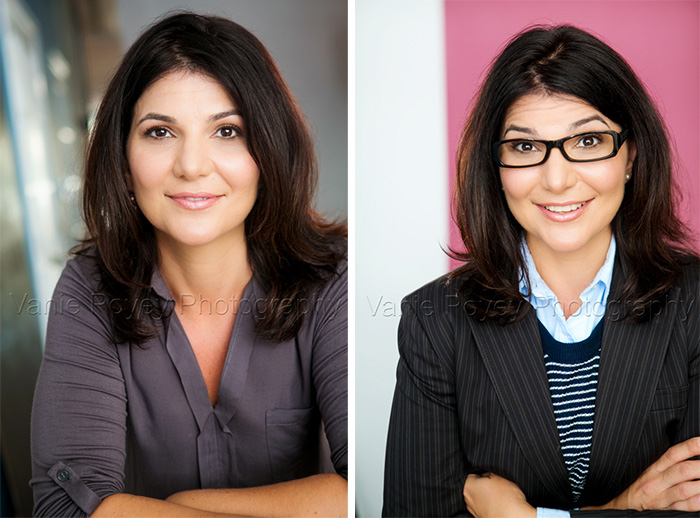
Cindy Varon: Theatrical Mom / Sitcom Office
I feel like asking, “Huh? Hold on there, what do you mean by that? Don’t you want BOTH commercial and theatrical headshots out of one session? Why would you label a photographer that way?”
I’ve NEVER heard photographers label themselves one or the other. They usually call themselves Headshot Photographers, and headshots include both commercial and theatrical images.
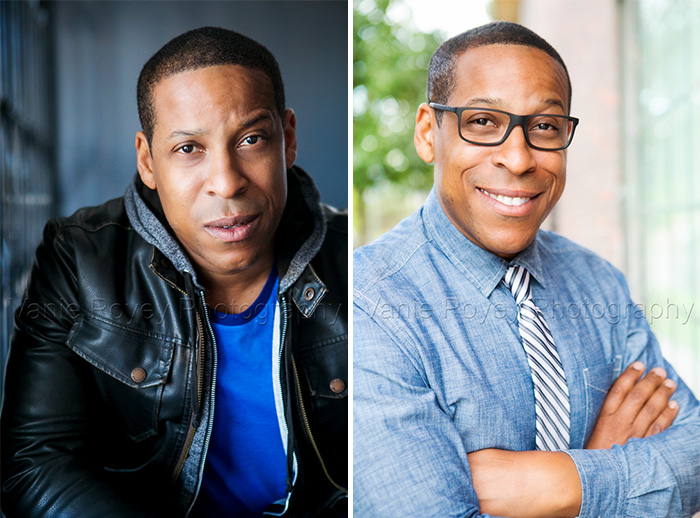
Brennan Feonix: Theatrical Hero / Commercial Office Guy
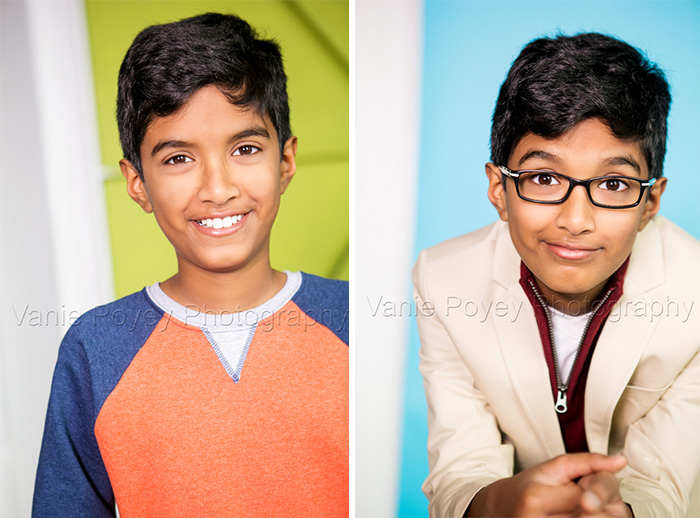
Rishi Adduri: Commercial Kids Headshots
Here’s the question you should be asking: Can the photographer bring out both my commercial essence AND my theatrical essence? To answer this question, let’s first define commercial vs. theatrical headshots.
The following definitions do not necessarily have to exist at the same time, but at least one or more of the following elements are what defines commercial vs. theatrical.
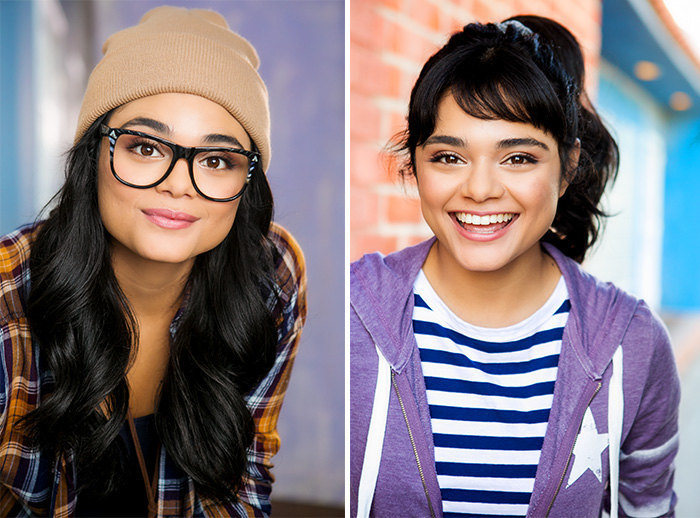
Anissa Borrego: Theatrical or Commercial Hipster / Commercial Gamer
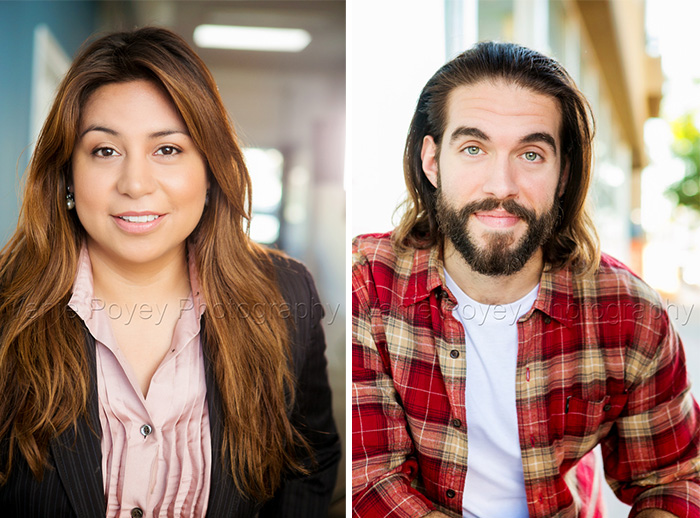
Eva Garcia Luna: Theatrical Detective / Vincent Chimato: Theatrical Blue Collar
- Smile vs. No Smile: One way to define a commercial shot is by the big smile, and conversely, a theatrical shot traditionally is non-smiley. The line between the two has blurred a bit over the years; often, the ‘in-between’ smirky shot can be effective commercially AND theatrically. But for the most part, our traditional definitions of smile means commercial, and no smile means theatrical, still apply.
- Lighting: Another difference is in the lighting choices the photographer makes. Usually, contouring with shadows or harsh shadows for dramatic effect are defined as theatrical. Flat lighting is generally used for commercial shots.
- Colors: Theatrical shots can be defined by darker, moodier colors, while commercial shots can be expressed with brighter, ‘happier’ colors.
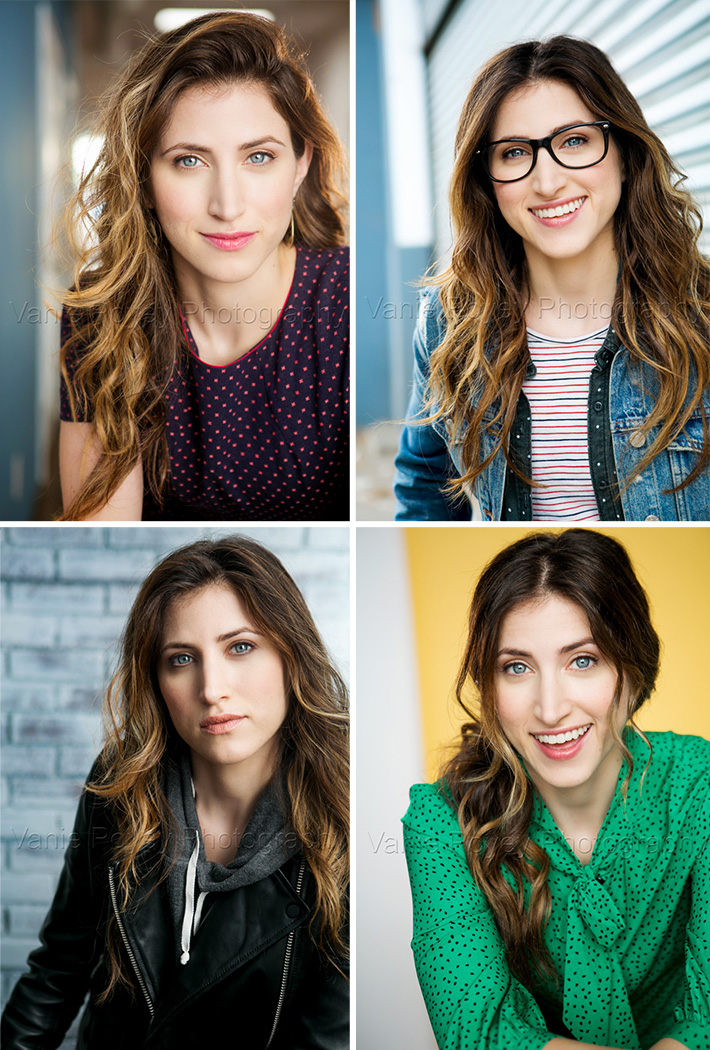
Dylan Silver: Theatrical Love Interest / Commercial Hipster / Theatrical Hero / Comedic Office
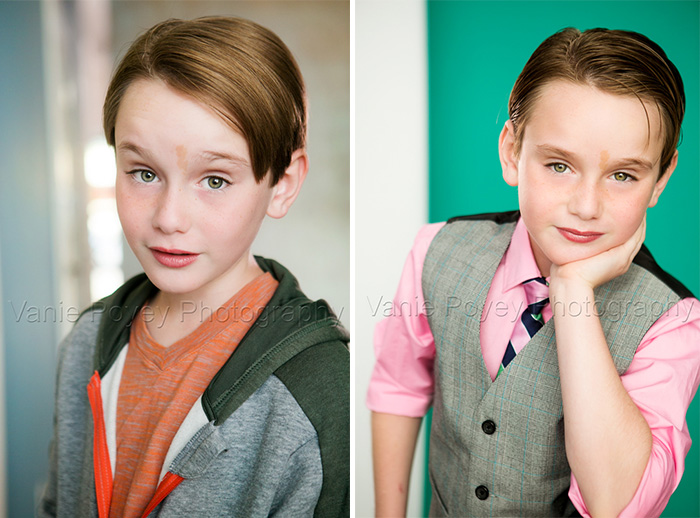
Jonathan Wilson: Theatrical Bully / Theatrical Mischievous Student
So it becomes clear that when actors put commercial or theatrical labels on photographers, it’s likely because they’re actually noticing the particular photographer’s style. That DOESN’T mean that the photographer only shoots commercial or theatrical.
If the photographer has a dramatic lighting style, look to see if there are shots in his portfolio that convey a lighter essence with either softer lighting, or smiley images, perhaps with colorful clothing choices. If any one of these elements are present in your shot, the image will pass as commercial.
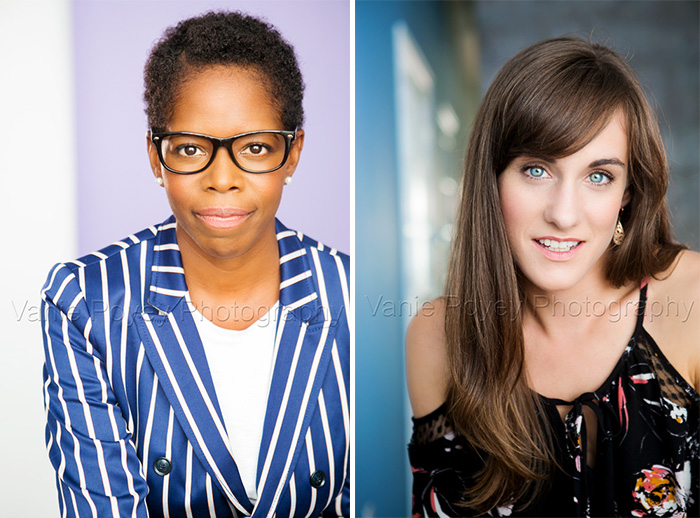
Lola Rae: Theatrical Creative Commercial / Jenaha McLearn: Commercial Girl Next Door
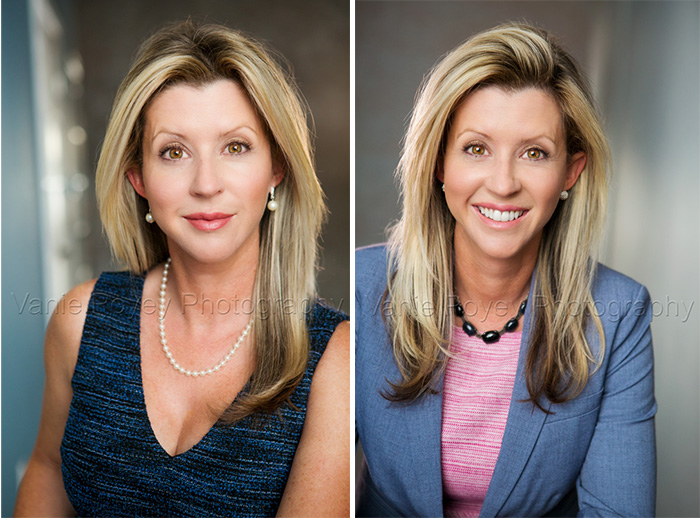
Diane Sargent: Theatrical Country Club Wife / Commercial Upscale Business
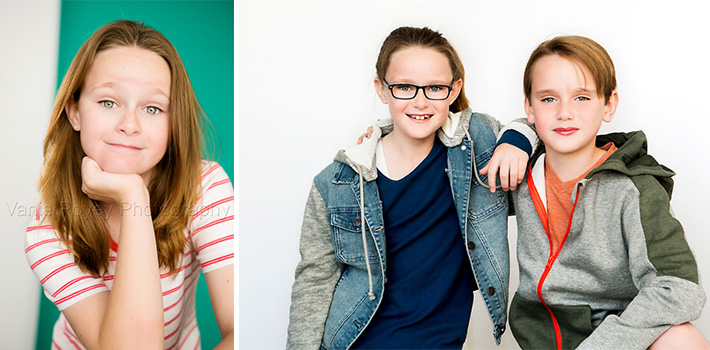
Shannen Wilson and her brother Jonathan: Kids Headshots
Same with theatrical. If a photographer has a bright style, if you see images with subtle expressions, maybe a little smirky, or even dramatic lighting and with darker color choices, that means you can probably expect theatrical shots out of the session.
What are YOUR experiences when it comes to commercial vs. theatrical?
___
I love helping you by putting out this free information (often written on weekends and evenings) so please help me spread the word by commenting and or sharing this post on your social feed!🙏🏻
Yes, actors say this because of the style of the photos a photographer tends to have. And it seems to me a photographer might develop a particular style because that particular look/style is something they like and are good at. In general in life people tend to lean into what they are good at or what they may feel more of affinity towards. And just as not all actors can do both comedy and drama well, not all photographers can do both commercial or theatrical shots well. This is why actors sometimes label them as one or the other.